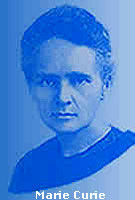Marie Curie fellowships consolidate researchers' careers, finds evaluation
A two-year impact assessment of Marie Curie fellowships under the Fourth and Fifth Framework Programmes (FP4 and FP5) has concluded that the scheme plays an important role in consolidating researchers' scientific careers. Of the post-graduate and post-doctoral fellows that took part in the scheme between 1994 and 2002, 90 per cent of them were still active in paid research at the time of the impact assessment. Furthermore, 68 per cent of respondents said that following their fellowship they now enjoy a higher level of responsibility in their work. Under FP4 and FP5, nearly 12,000 researchers undertook Marie Curie fellowships in another country - 47 per cent at post-graduate level (usually during their doctoral studies) and 49 per cent at post-doctorate level or with more than four years of equivalent research experience. The impact assessment was carried out by the Italian agency for the promotion of European research (APRE), the University of Leeds in the UK, and the Hungarian Science and Technology Foundation, at the request of the Commission's Research DG. The assessment was based on an online questionnaire, as well as interviews and analysis of background documentation. It involved well over 4,000 former fellows and supervisors. In general, the report describes Marie Curie fellowships as 'a very useful and successful scheme, greatly appreciated by the majority of those who participated'. The levels of remuneration and bench fees guaranteed fellows' independence, and also enabled researchers to visit countries where salaries are typically low, it adds. Respondents highlighted meritocratic evaluation procedures and healthy competition as factors that enhance the prestige of the Marie Curie programme, and indeed 49 per cent of them believe it to be more prestigious than any other fellowship scheme. In terms of the training impact of fellowships, qualitative analysis revealed positive effects in terms of additional scientific skills, complementary skills and interdisciplinary experience. According to many post-doctoral fellows, the scheme allowed them to achieve scientific maturity and independence as a researcher. 'The main training impact [...] lay in working side to side with the other members of the host research group, which provided exposure to new knowledge and ideas,' confirms the report. As for researchers' preferred destinations, the UK proved most popular by playing host to 28 per cent of all fellows, with the opportunity to improve English language skills cited as a key reason for this high figure. France was next with 17 per cent, followed by Germany (12 per cent) and the Netherlands (9 per cent). Certain countries received more fellows than went abroad, notably the UK, Denmark, the Netherlands and Norway, while net 'sending' countries included Slovakia, Iceland and Hungary. One area where the scheme could be improved is in its interaction with industry, despite the creation of a special industry fellowship programme under FP5. 'Industry-academia collaboration was felt to be important by 60 per cent of fellows and 63 per cent of supervisors, but only 18 per cent of fellows had been engaged in such collaboration during the fellowship,' the assessment notes. Given the overwhelmingly positive result of the impact assessment, it is no surprise that most of its recommendations are aimed at preserving the programme's strengths. 'The Marie Curie fellowships should be continued following the same guiding principles of selection based on excellence and with a free choice of research subject,' it argues. The principles of non-discrimination in terms of nationality and the avoidance of quotas should also be retained, and levels of remuneration and support for research should be kept at a comparable level. Finally, the report concludes that for any future impact assessment exercises it would be useful to include unsuccessful applicants in the process, as this would allow for an assessment of the selection procedure.



